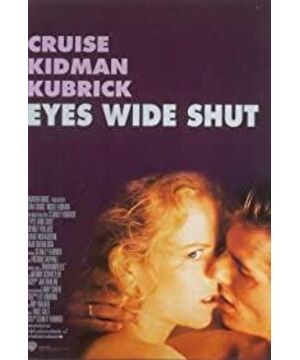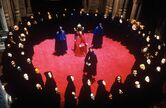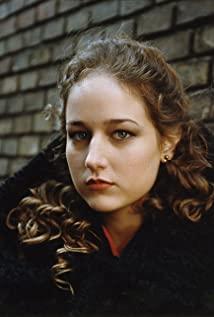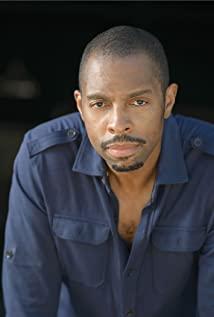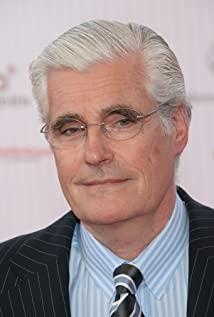1. Love and marriage
As a middle-class couple, the two each have their own overflowing sexual attraction at Christmas dinners, which can be redeemed whenever they need it (then & there). Bill has the chance to cheat every day, but every opportunity is full of dangers; Alice doesn't want Hong Xing to cheat, but she is afraid of losing the sense of security and commitment under the marriage.
Look around and think about whether there is such a person around you: you can talk about all kinds of troubles without pressure, when something good happens, you want to share it with him as soon as possible, when you encounter difficulties, you can safely ask and ask for advice, no one is better than this person. Learn about your past and yourself, share similar interests and rapport with your values, and appreciate each other.
Look around and think about whether there is another person around you who understands your daily habits deeply, provides you with material and spiritual support and care, knows your unique tastes and preferences, and has countless unique commonalities between you. Experiencing, in any pinch, if only one person is allowed to be with you you will want that person, and vice versa.
Can you imagine that the above two images can coexist in a person who you will encounter and accurately identify in your limited time and experience?
Can you imagine that you will be sufficiently attractive and capable of making this person irredeemably in love with you at the same time as being irredeemably in love with this person?
Can you imagine that you will have to resort to some special ritual and make a covenant just because this covenant will provide you with an ancient and frail protection?
Well, the thinking about love and marriage has come to an end, and in the third part I will try to explain the marital crisis from a closer to the essential point of view. But at the same time, I have every reason to believe that, as Kubrick’s posthumous work, he will, as always, convey to us some reflections beyond the diet of men and women about how human society works and where we end up.
2. Money and Power
We are lucky to be alive.
Let's just be grateful.
Alice had already mentioned the name of the nanny beforehand, but Bill had no memory of it at all; Bill was walking on the street and several hooligans deliberately bumped into him. The driver was given half of it, with the promise that the other half would be given back when he came back. Kubrick used a few details to outline the interaction mode between Bill, who is a standard middle class, and the people at the bottom, and explained the straightforward truth to us: those who can constitute a relationship of contempt and being despised are essentially the same kind; the real class The gap is insurmountable or even undetectable.
This is exactly the same as the layout of the Luzhen Hotel in Lu Xun's "Kong Yiji": the short-shirted man who was standing outside the counter for dinner laughed at Kong Yiji, who was also standing, while the long-shirted man had already walked into the next house and asked for wine. Dish, sit and drink slowly. Kong Yiji's contradiction lies in the separation of culture and power; while the contradiction in the middle class represented by Bill lies in the separation of money and power. When culture is not supported by power, culture is more like a joke; when money is not supported by power, money is pitiful.
Kubrick, who was born in photography, is also unique in the composition of the film. For example, in the shot of Bill rescuing Mandy, his employer is standing in the middle, Bill and Mandy are on the right, and the bidet and toilet are on the left. , Mandy and toilet are in the front, Bill and bidet are in the back, the positions are quite symmetrical, and the functions are exactly corresponding. Whether prostitutes or doctors, aren't they all tools, can't they all be exchanged for money? The so-called middle-class elites are no different from prostitutes in the eyes of the real upper class.
With his wallet and medical certificate, Bill can settle all the problems he encounters in his daily life and enjoy everyone's trust, respect and help. Huge income, decent career, beautiful wife, in and out of high society, used to buying all services with money, and let them "keep the change" like a charity. But when he puts on his rented clothes and takes a taxi to a party in Somerton, he looks as clumsy as trying to imitate a child trying to fool adults.
Speaking of children, their daughter is named Helena, and for the middle class, what is the future of their children, or the middle class. Alice usually fascinates her daughter about how to make herself more beautiful; she teaches her daughter an arithmetic problem, which is to calculate which boy is richer; Helena finally raised a Barbie doll when choosing a Christmas gift, the daughter of a clothing rental shop owner looks like Great doll, and actually Alice is like a doll, and Helena herself is becoming a doll, up for grabs.
Throughout human history, slavery has always existed, but it has different manifestations in different periods, the status of slaves has been changing, and the system has been improved step by step. This is where the real despair comes: everything is inherited as it should.
3. Morality and Desire
Morality is just a fictitious thing that groups of lower people use to hinder higher people.
There are two parties before and after the film, one is a Christmas ball with elegant and civilized clothes, and the other is an indulgent carnival (orgy) with masks and sensuality. Clothes cover instinct, masks cover morality, and indulgence cover all desires (including sexuality).
People at the top can wear masks and do whatever they want, while ordinary people can only dress neatly and obey morality and close their eyes. Bill told Alice during the argument that every man who talks to a woman just wants to have sex with her, but says he is the exception because he is married and he knows what he is doing. Does he really know, he knows; is he the exception, obviously not.
Why are the middle class wealthy but still not happy? Because their actions are restricted by spiritual shackles, their desires cannot be stretched. Why can't we imagine the happiness of the upper class at all? Because when primitive desires can be infinitely amplified, what happens is only a matter of imagination.
Humans are the only creatures that have the ability to realize desires far beyond the needs of survival. However, human society has evolved three material shackles: the first is the heart, the second is the gold, and the third is the wood. Holders constitute absolute control and exploitation of non-holders, so they can be either a person's lifelong pursuit or an insurmountable natural moat.
Not only that, in order to maintain a more stable order, modern human beings have also invented a set of spiritual shackles, called straight heart. The vast majority of modern human behavior is not necessary for survival, and when there is absolute freedom, the result must be excessive greed and insufficient indulgence. Therefore, the use of morality to suppress human beings can neither be said to be ugly, but it is by no means pure instinctive desire.
Those who are absolutely free are indulgent, and those who obey morals are trapped. The lovely middle-class people do their best to resist the temptation of emergency love, resist the exhaustion and boredom of long-term marriage, and strive to keep the so-called promise of love and marriage. Tools that limit ordinary people.
But human beings already have a heteronomous tool - the law, and the law only punishes the behavior that hurts the core rights and interests of others. The reason why Nietzsche angrily denounced morality is that all morality promulgated in the name of some authority is fictional, morality should not be the tool of another heteronomy, and the real morality of man can only come from himself and not others.
Therefore, he believes that the strong are self-transcendence, and they themselves are the standard of measurement for everything. This is the revaluation of values, breaking all the conventional norms of the world, and placing their own norms at the highest position in their own world. A person with a clear heart can feel refreshed by drinking from the greedy spring, and feel happy when it is dry. This is exactly what Confucius said, do what you want without breaking the rules.
Without the desire for spiritual pursuit, it can only continue to expand, deform, and even go crazy. Like when Alice is talking about having a relationship, she only uses "make love" when referring to the naval officer and just "fuck" the rest of the time. Because that is what she really desires, she is given the desire to pursue at the spiritual level, and the rest are just to satisfy the fleshly desires.
More ironically, the choice of the middle class to close their eyes to avoid fear coincides with the choice of the upper class to fill the void and avoid boredom——
ALICE: And, you know, there is something very important we have to do as soon as possible.
BILL: What's that?
ALICE: Fuck.
View more about Eyes Wide Shut reviews


